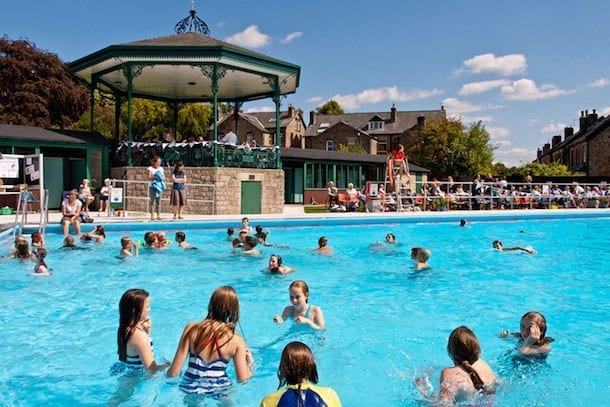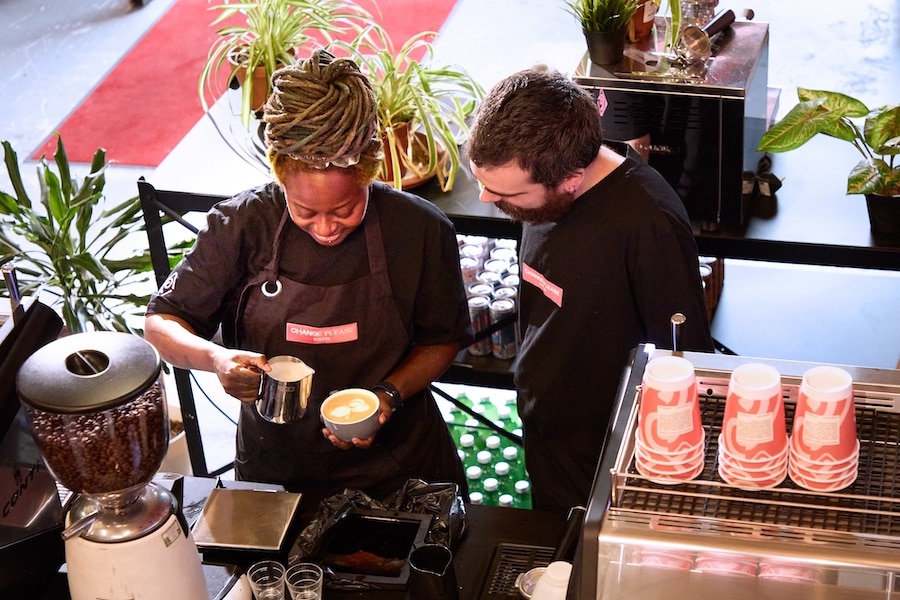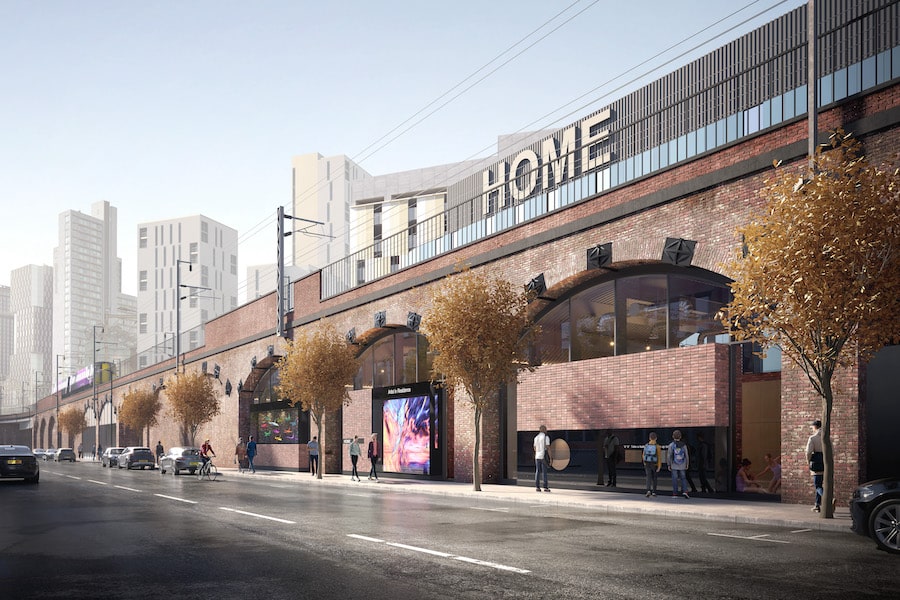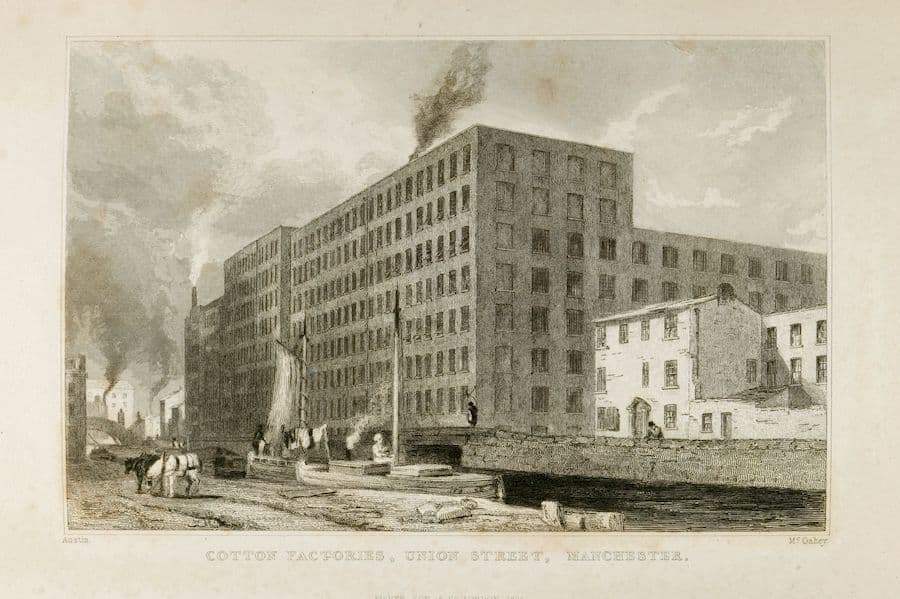Revealed: TransPennine Express’ futuristic new fleets featuring movie screens on seats
- Written by Ray King
- Last updated 6 years ago
- Business, Sport, Travel & Hotels
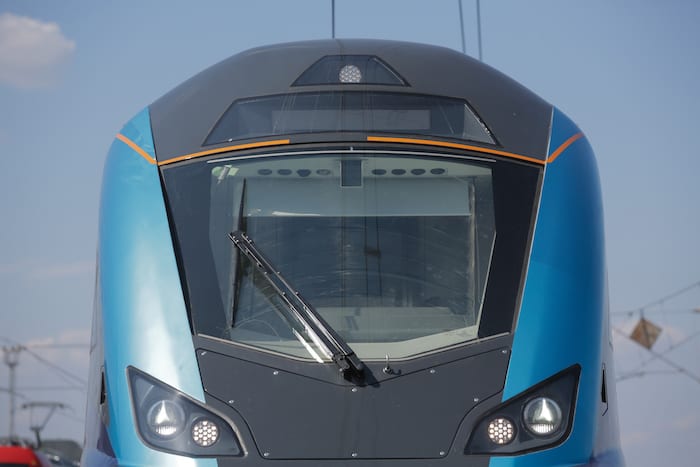
A new generation of fast, futuristic trains is set to be introduced on TransPennine Express routes through Manchester to Liverpool, Leeds and the north east and Scotland from the autumn.
Three new fleets of Nova trains are currently being built in Spain and Japan as part of Network Rail’s multi-billion pound Great North Rail Project to provide 2,000 more services and carry 40,000 extra passengers by 2020.
TransPennine Express, part of the First Group, is investing £500 million on the Nova trains which will provide thousands of extra seats and substantial improvements in passenger experience. Customers will benefit from spacious carriages providing extra legroom, additional luggage space and Wi-Fi.
The first of the Nova 1 trains left Japan earlier this week and is due to arrive in the UK in two months’ time.
Once the train completes its shipping journey, it will begin testing across the north this summer, before entering passenger service in summer 2019. The modern Japanese bullet train-inspired fleet is being built by Hitachi for Angel Trains.
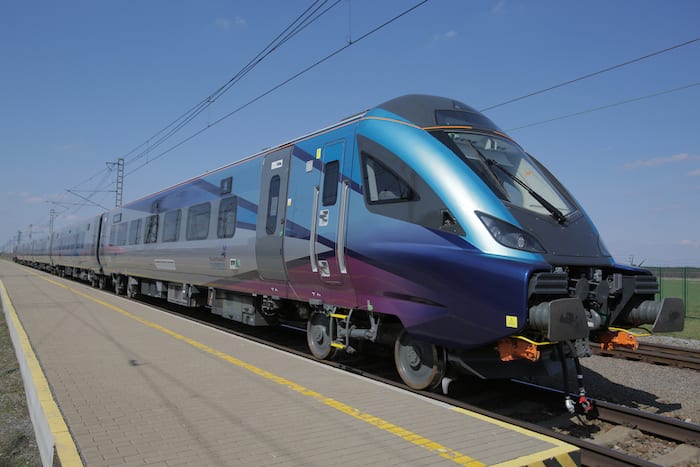
Each of the 19 new five-carriage inter-city trains operating between Manchester, Liverpool, Manchester and Edinburgh will provide 342 seats – 161 more than existing trains.
Hitachi is using its famous Japanese-bullet train technology to make the new fleet light and aerodynamic.
The 19 trains will all be hybrid, meaning they can switch seamlessly mid-journey between electric and diesel power.
The trains, able to run in either five or ten carriage formation, are capable of speeds of up to 140mph in electric mode and 125 mph using diesel engines.
By using modern MTU engines from Rolls-Royce, the trains will cut harmful emissions under diesel power by up to 90%.
Each new train will offer fast, free Wi-Fi in both Standard and First Class as well as complimentary on-board entertainment system, Exstream, allowing customers to stream the latest movies and TV shows during their journey.
Passengers will see further improvements following the upgrade of the TransPennine route between Manchester, Leeds and York.
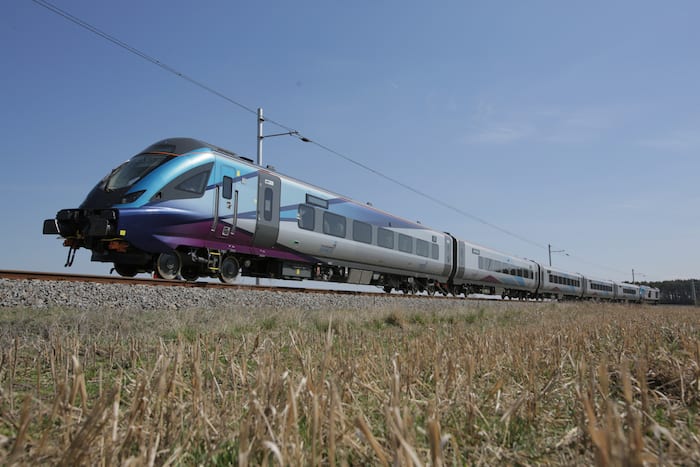
The investment in these new trains is supporting thousands of jobs across the UK through Hitachi’s decision to choose over 30 UK firms to supply key components. Businesses chosen include Lucchini Unipart Rail (LUR), whose Manchester factory will build wheel sets for the trains.
The fleet will also support long-term jobs at depots along the route, including Hitachi’s newly built £80million depot in Doncaster.
Earlier this week, the first of TPE’s new Nova 3 trains began testing at the Velim Test centre in the Czech Republic and is on track to enter service towards the end of 2018. The train will undergo a wide variety of different tests including aerodynamics, braking and on-board information systems.
The 13 state-of-the-art, five carriage diesel trains each have 291 seats compared to 181 on the current Class 185 trains operated by TPE on the route linking Liverpool, Manchester, Leeds, York, Scarborough and Middlesbrough.
Each train features high quality, comfortable seating and interiors with more luggage space, plug and USB charging points, free on-board Wi-Fi in both standard and first class and entertainment system. Modern display screens that will provide real time reservation information have also been installed.
Once testing is complete, the trains will travel to the UK where further tests will be carried out before the new trains go into service in autumn 2018. They are being manufactured by Construcciones y Auxiliar de Ferrocarriles (CAF) in Spain and will be maintained at Alstom’s facilities at Longsight, Manchester.
The electric Nova 2 fleet, also being built in Spain, will operate on the electrified routes between Manchester Airport, Liverpool, Preston, Glasgow and Edinburgh from spring 2019′ Each of the 12 five-carriage trains will provide 286 seats – an extra 105 compared with existing trains – 60 per cent of which will be arranged around tables.
These too will offer the same passenger facilities and be maintained at Longsight.
Together, the three new fleets will deliver 13 million more seats per year for customers, giving an 80 per cent increase into the north’s five largest cities at the busiest times of day.
- This article was last updated 6 years ago.
- It was first published on 20 April 2018 and is subject to be updated from time to time. Please refresh or return to see the latest version.
Did we miss something? Let us know: [email protected]
Want to be the first to receive all the latest news stories, what’s on and events from the heart of Manchester? Sign up here.
Manchester is a successful city, but many people suffer. I Love Manchester helps raise awareness and funds to help improve the lives and prospects of people across Greater Manchester – and we can’t do it without your help. So please support us with what you can so we can continue to spread the love. Thank you in advance!
An email you’ll love. Subscribe to our newsletter to get the latest news stories delivered direct to your inbox.
Got a story worth sharing?
What’s the story? We are all ears when it comes to positive news and inspiring stories. You can send story ideas to [email protected]
While we can’t guarantee to publish everything, we will always consider any enquiry or idea that promotes:
- Independent new openings
- Human interest
- Not-for-profit organisations
- Community Interest Companies (CiCs) and projects
- Charities and charitable initiatives
- Affordability and offers saving people over 20%
For anything else, don’t hesitate to get in touch with us about advertorials (from £350+VAT) and advertising opportunities: [email protected]

Review: Animal Farm at Octagon Theatre ‘brings Orwell’s dystopian masterpiece to life’

“Sports belongs to everyone” Meet the charity on a mission to ensure sport is for all
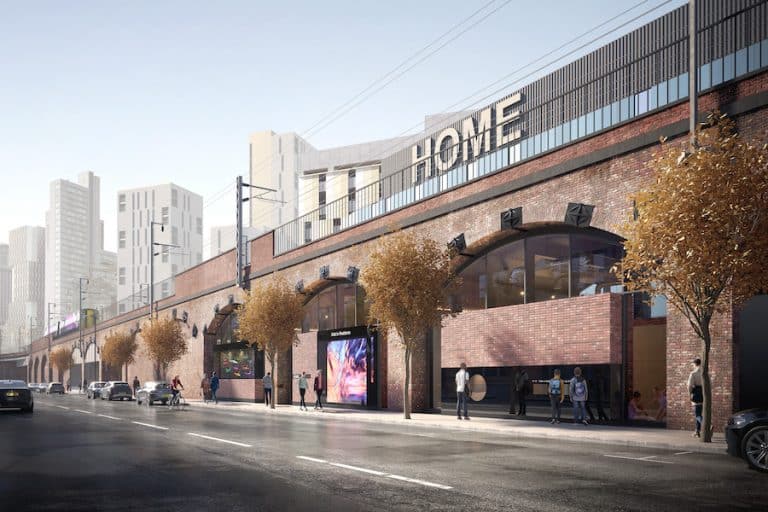
The game-changing, free-to-use space for artists and creatives opens

Manchester is a ‘city of sanctuary’ – but what does that mean?

“A spectacular showcase of storytelling” Manchester Film Festival reveals 2025 line up
